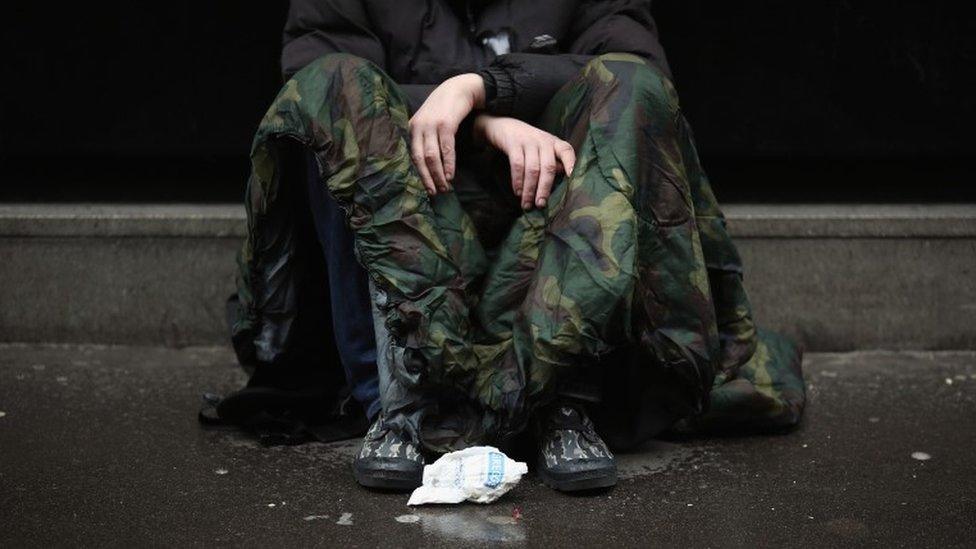Should we give money to beggars?
- Published
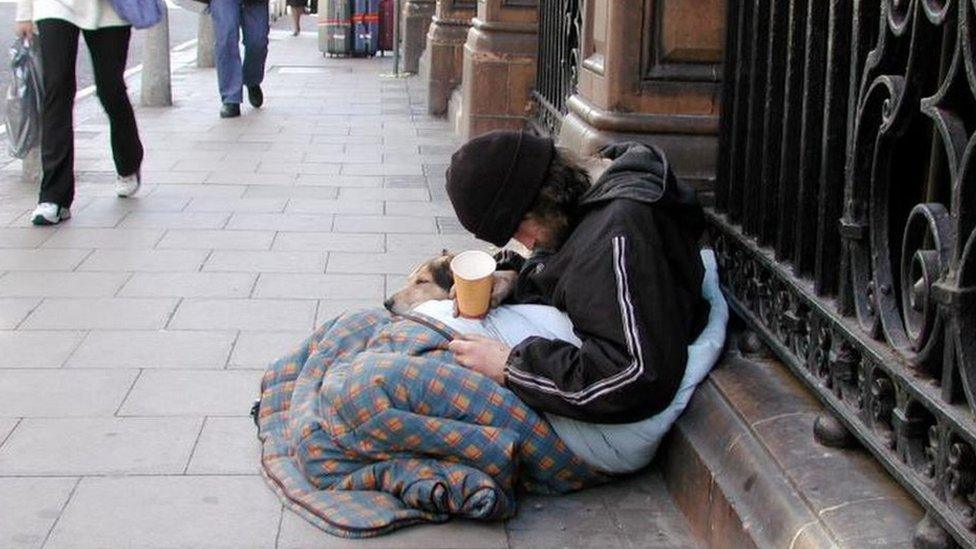
Figures show homelessness has reached its highest level for nearly 10 years
A dishevelled man sits in a shop doorway holding an empty coffee cup containing a few pennies.
Next to him is a brown cardboard sign with the words 'homeless' scrawled across it and he calls out: "Can you spare some change, please?"
It is a question many people will have faced when they come across someone begging in the street.
Nottingham City Council believed it had the answer.
But its series of hard-hitting posters telling the public not to hand over their cash to beggars have since been banned by the Advertising Standards Authority.
The ASA said the posters, which claimed money given to beggars would be used on drugs, alcohol and fraud, reinforced "negative stereotypes" and were likely to cause offence.
New figures released on Wednesday showed homelessness in England has risen to its highest level for nearly 10 years.
A total of 15,170 households were classed as homeless in the three months to June 2016 - a jump of 10% on the same period last year, according to figures from Department for Communities and Local Government.
With more people suffering from homelessness, the general public may feel they wish to give cash to those sleeping rough.
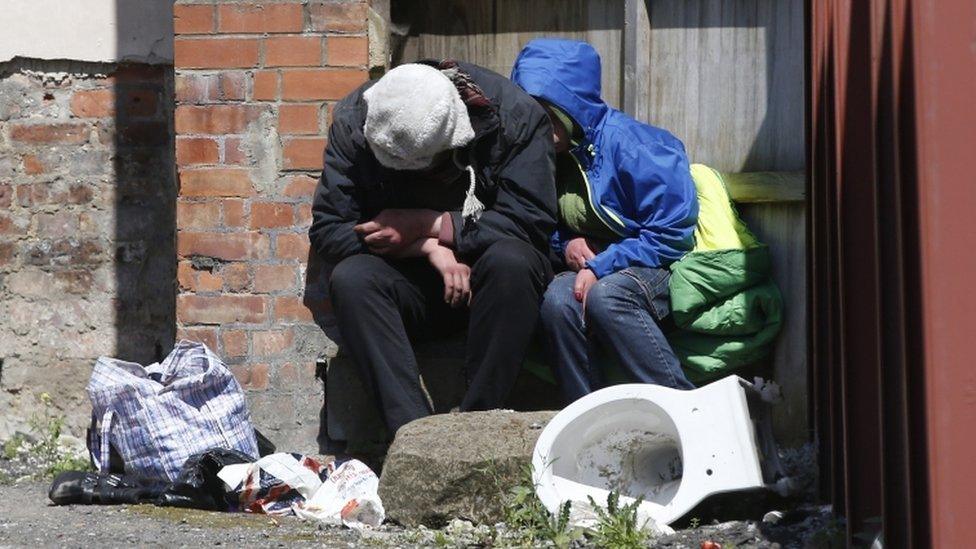
Homeless charity Thames Reach says begging often funds drug addictions
But London-based homeless charity Thames Reach said handing over money to beggars "can have fatal consequences".
Its outreach teams estimate 80% of people begging in the capital do so to support a drug habit which is often an addiction to substances including crack cocaine and heroin.
Communications manager Mike Nicholas said: "Most people begging are not individuals in temporary difficulties, but people who are dependent on a begging income.
"This is almost certainly to fund a serious drug habit. There is no need to beg on the streets in 2016.
"As an organisation that has worked with people on the street since 1984, we have seen many lives damaged by hard drugs and alcohol misuse.
"We have even lost people through overdoses in situations where a significant portion of the money they spent on drugs came from members of the public giving loose change
"Giving to people who beg is not a benign act. It can have fatal consequences."

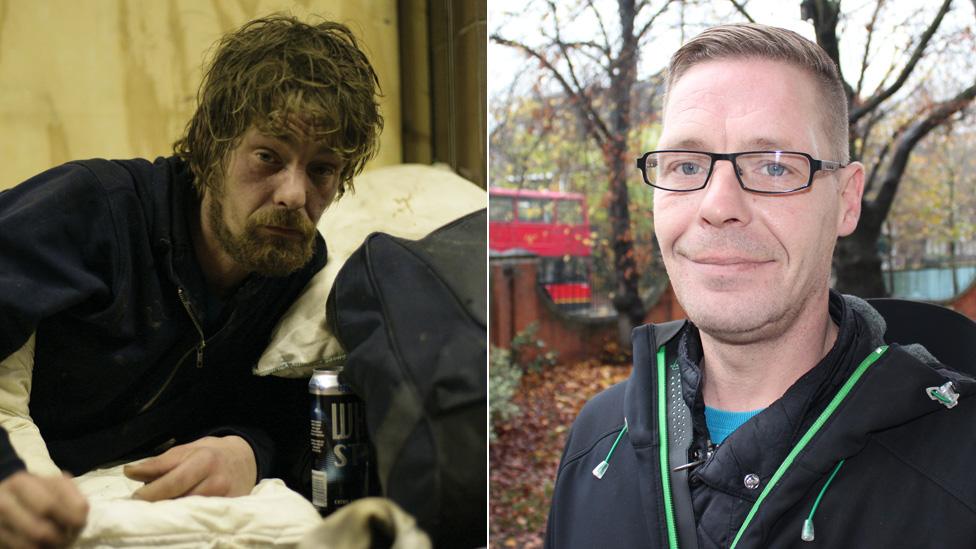
Jerry begged on the streets until he turned his life around with the help of Thames Reach
Jerry's story
Jerry was homeless for around nine years and used to beg to fund his drug habit.
He now has his own flat and is clean from drugs after receiving help from Thames Reach.
He said: "To be quite honest I thought I'd die on the street.
"You wouldn't let a dog have lived the way that I was living. I lived from hand-to-mouth, day-to-day. My health, my hygiene had totally gone. I used day-to-day and I used to keep my survival. My survival out there, my coping mechanism was drink and drugs and it took me to a place I didn't expect to go."
Jerry said he used to wake up every morning "wanting to die".
"[My flat] has given me that chance to get clean, stay clean and look at re-educating myself and going back to work and becoming like everyone I sort of frowned upon," he said.
"Everyone who I took from when I was out there begging and using, to become one of those people."

Government figures for 2015 also found the number of rough sleepers on any one night in England has risen by almost 30% in the last year to 3,569, external.
Homeless charity Crisis said the rise in homelessness was due to the shortage of housing and ongoing effects of the economic recession combined with government policies, external.
It said those who beg were often struggling with "extreme poverty" but the decision on whether to hand over money was a "personal" choice.
A charity spokesman said: "Whether or not people give money to beggars is a personal decision, but we know from our own clients how important a simple act of kindness can be to those in desperate circumstances.
"Not everyone who begs is homeless and not all homeless people will beg. Nevertheless, people who do beg are often some of the most vulnerable in our society, and many will be struggling with extreme poverty.
"We need better support services for all homeless people, not just the most visible who are on the street."
Both charities say that the public can help the homeless without giving over money to those begging.
They say making a donation to a homeless charity, engaging rough sleepers in conversation or volunteering time are other ways of providing support.
Homeless charities also suggest contacting a local referral or outreach service if there are concerns about any rough sleeper.
- Published28 September 2016
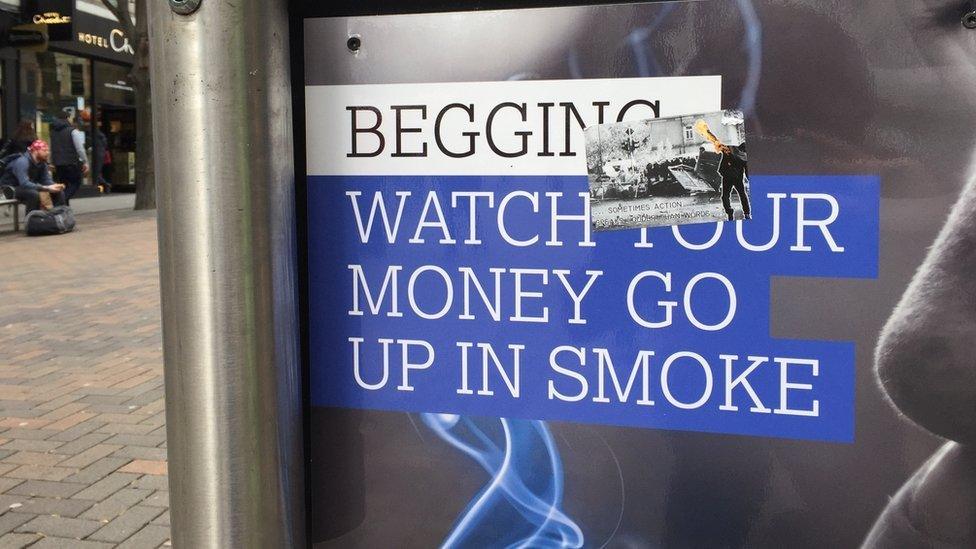
- Published18 August 2016
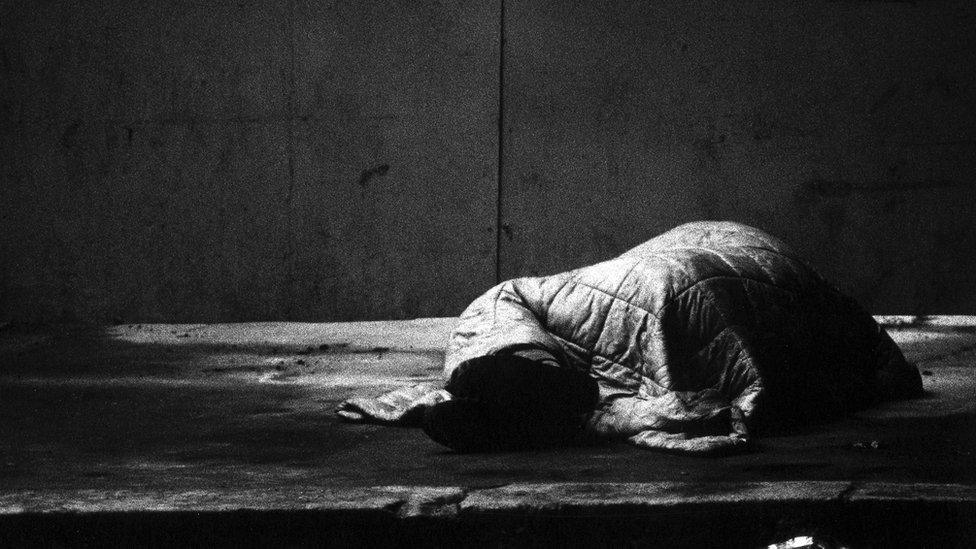
- Published25 April 2016
